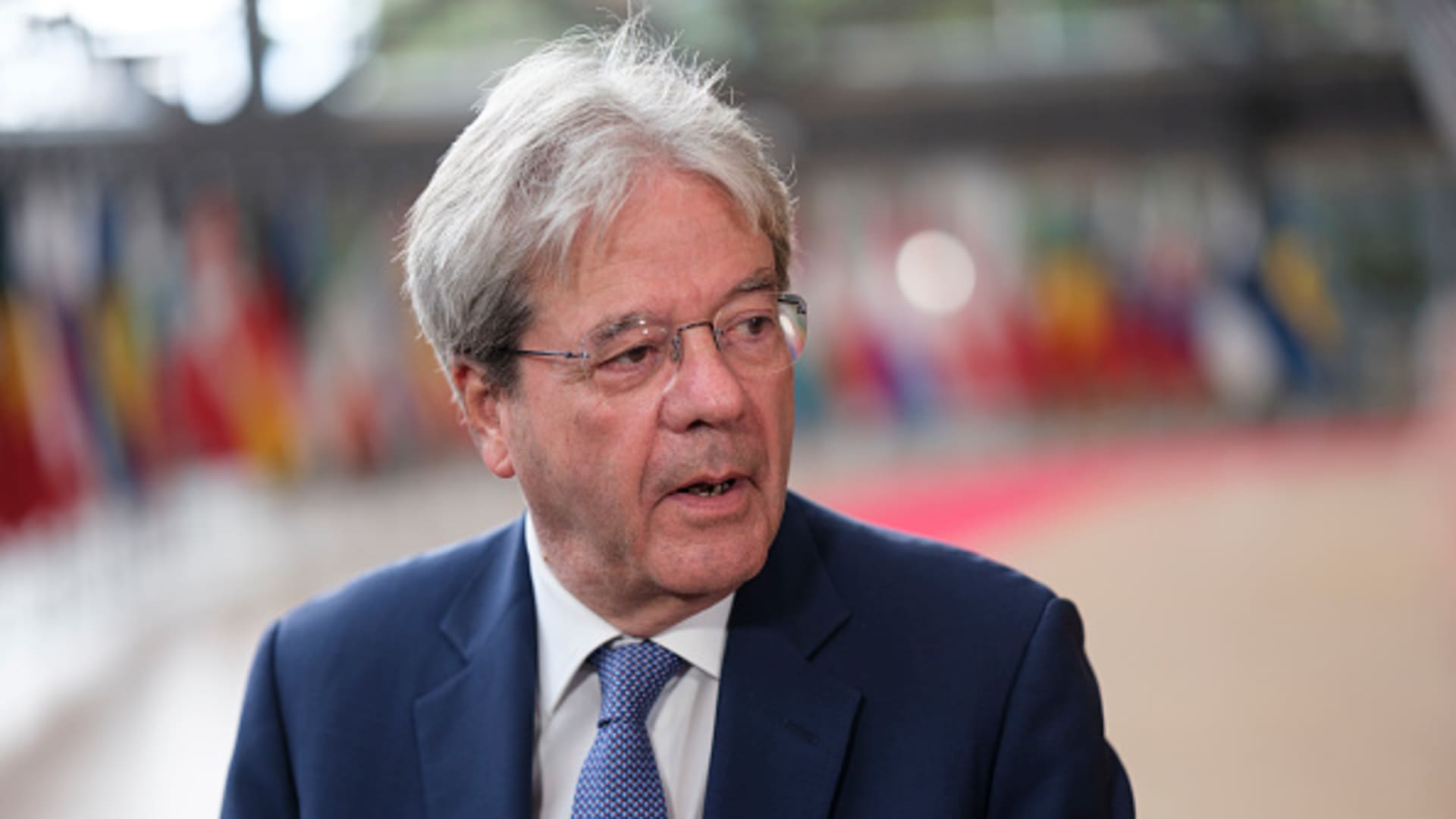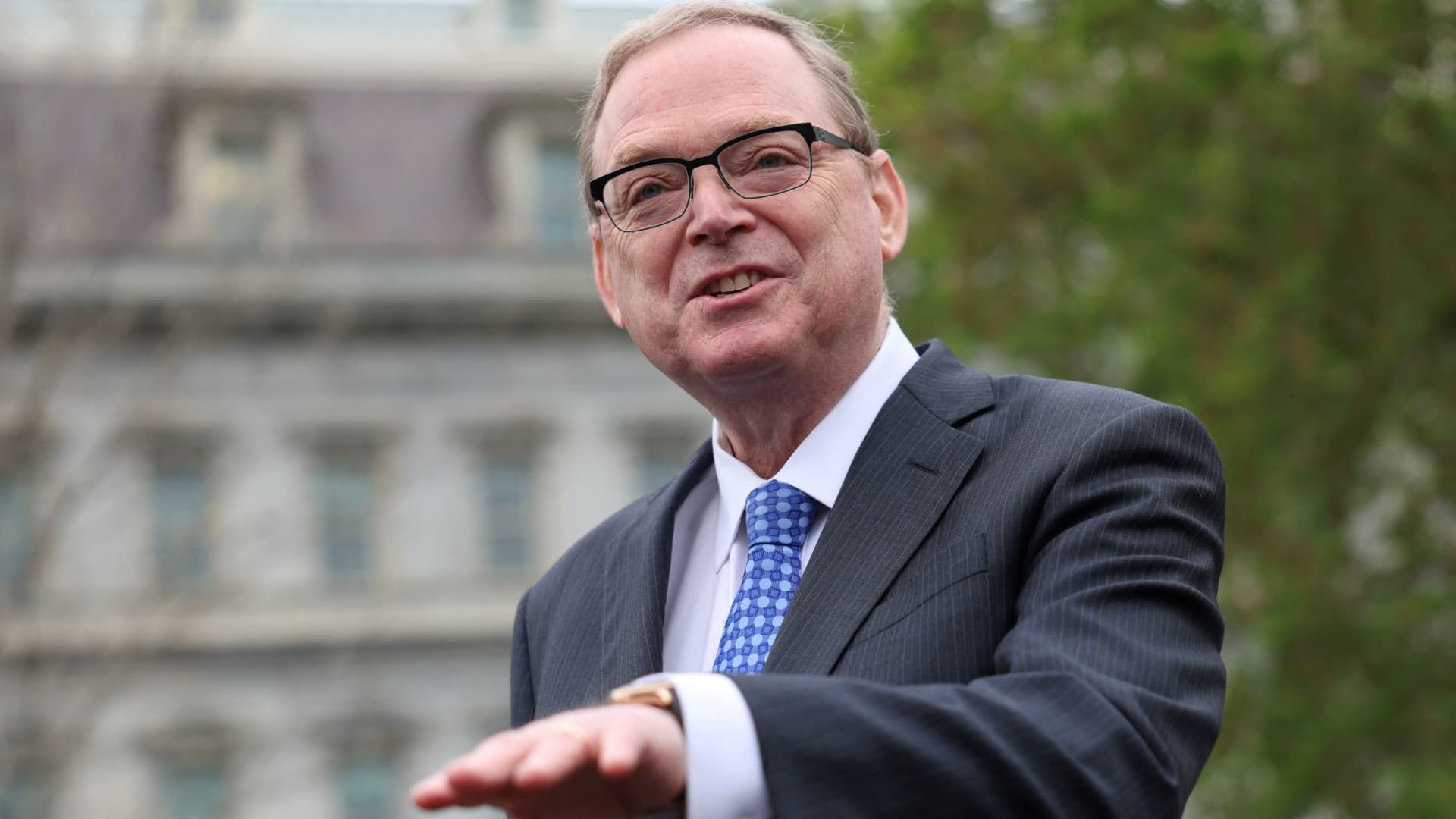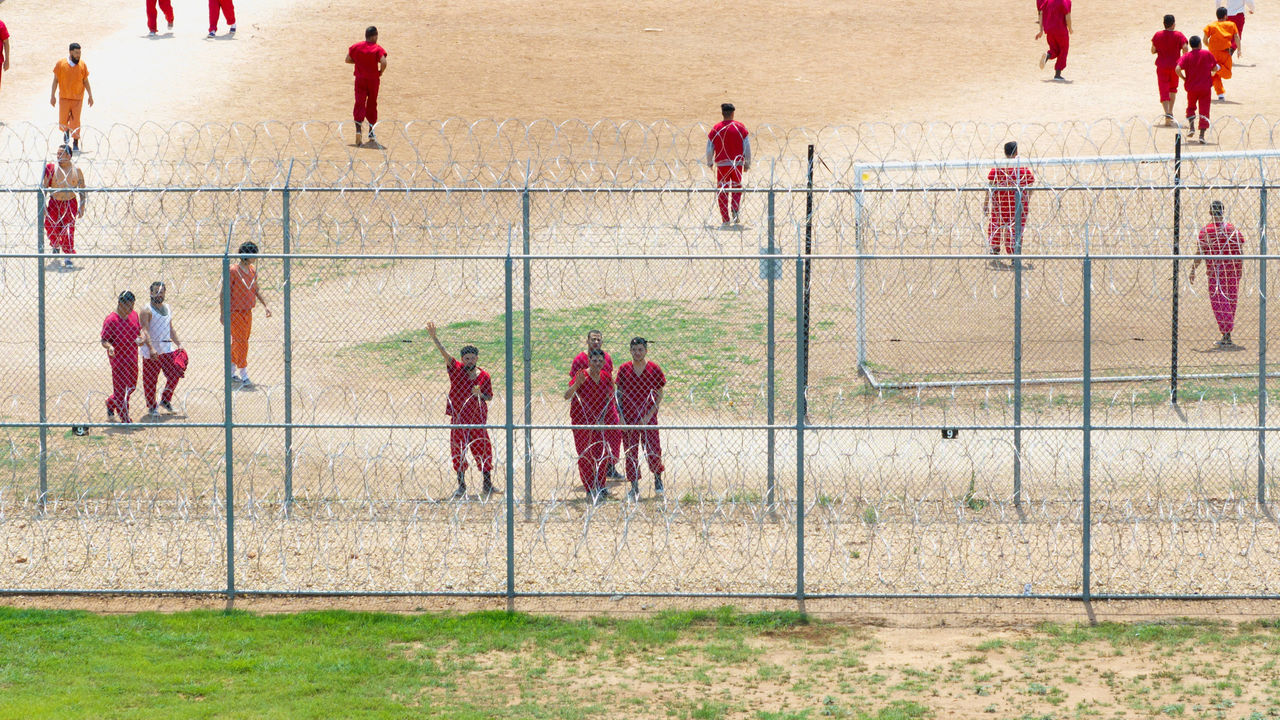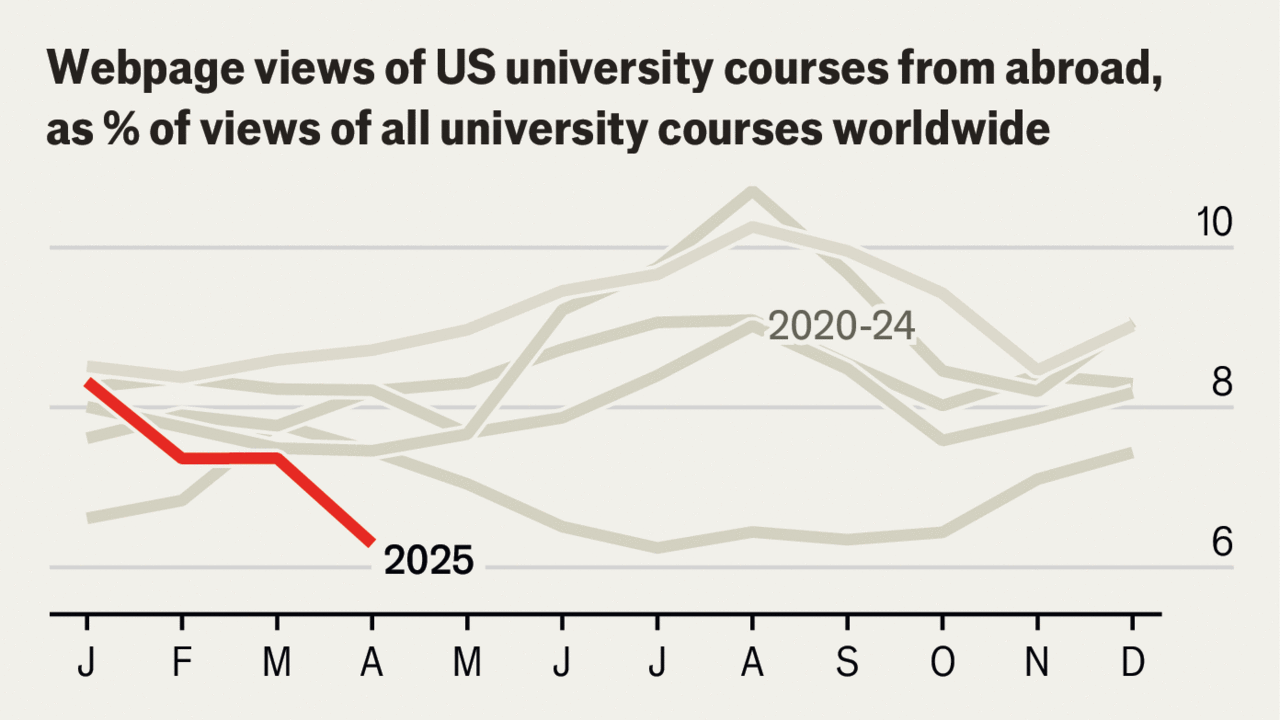The European Union has successfully avoided the “terrible prophecies” that threatened its economy in recent years, but must still contend with Russia’s war in Ukraine and a tenuous trade relationship with China, outgoing European Commissioner for Economy Paolo Gentiloni said Saturday.
The bloc’s economy underwent “overall a weak growth, but nothing of the terrible prophecies that we heard in the last two or three years: recessions, blackouts, divergence, divisions in Europe in front of Russia’s invasion,” Gentiloni said in an interview with CNBC’s Steve Sedgwick at the Ambrosetti Forum at Cernobbio, on the shores of Italy’s Lake Como.
A former prime minister of Italy, Gentiloni has served as the European Commissioner for Economy under EC President Ursula von der Leyen since December 2019. The European Commission is responsible for the 20-nation euro zone’s economic strategy and legislation — such as tariffs — while the European Central Bank oversees the region’s monetary policy and interest rate decisions.
Gentiloni will not be returning for a second term as commissioner following Von der Leyen’s tumultuous re-election as president — but he has laid out the economic picture that awaits his imminent successor.
“The economy is growing, slowly, but growing. And the risks of differences among the European Union, that was very high when the pandemic happened, are very limited,” he noted. “The bad part of the story is that if we don’t raise out capacity in terms of competitiveness, if we don’t make enormous progress in what we call the capital markets union, and if we don’t address the challenge of defense … if we don’t do that, well, the new situation of the world will appear very difficult for Europeans.”
Resurging from the Covid-19 pandemic, Europe has been battling a cost-of-living crisis and high-inflation environment exacerbated by Russia’s February 2022 invasion of Ukraine and energy supply tightness following sanctions against Moscow. The euro zone’s economy has expanded in the first half of this year, with flash figures showing better-than-expected gross domestic product growth of 0.3% in the three months to the end of June, compared with the previous quarter.
In its spring forecasts, the European Commission projected the EU’s GDP will swell by 1% in 2024 and by 0.8% in the euro area, with respective growth of 1.6% and 1.4% in the two regions in 2024. At the time, the Commission flagged growth on the back of accelerated private consumption, declining inflation and a strong labor market, but also broader geopolitical risks amid ongoing conflicts in Ukraine and the Middle East.
Amid a drop in inflation, the ECB in June took the first step to ease monetary policy since 2019, trimming the central bank’s key rate to 3.75%, down from a record 4% where it has been since September 2023. As of Friday, markets had fully priced in another ECB rate cut in its forthcoming meeting of Sept. 12.
The Chinese relationship
Looking ahead, Europe must now weather the dual storm of close-call elections in key trade partner the U.S. in November, and frictions in its trade relationship China. The EU has come into Beijing’s crosshairs following the bloc’s June decision to impose higher tariffs on Chinese electric vehicle imports that were found benefit “heavily from unfair subsidies” and pose a “threat of economic injury” to EV producers in Europe.
Gentiloni on Saturday stressed that trade diplomacy with China and the war in Ukraine must top the agenda of challenges facing a new Commission — and that they are more pressing concerns than the advent of a potential second U.S. administration under former President Donald Trump.
The European Union must “support Ukraine, keep the doors of international trade open” but also “abandon our ingenuity in the trade relation with China. But this does not mean that we can accept the idea that international trade and international trade rules [are] over,” Gentiloni noted.
He downplayed the economic impact of a Trump victory in November, adding, “I think that a change in the U.S. administration, meaning Trump winning the election, of course it will not be welcome in Brussels, but I don’t think that the change would be enormous in terms of economic relations.”
Winds of change
Gentiloni has yet to announce his next steps after departing from the Commission, at a time when Europe and its legislative body face a rising wave of far-right support.
“You should never organize your next role when you are having a role. But of course I will give my contribution to European affairs and maybe also to Italian politics and Italian affairs,” he said Saturday.
The leftist politician was unlikely to garner the support of Italian Prime Minister Giorgia Meloni, who has nominated Minister for European Affairs Raffaele Fitto from the ranks of her right-wing Brothers of Italy party to join the new EU executive.
Far-right factions gained substantive ground in the latest European election, leading the right-wing prime minister of Hungary — which currently holds the presidency of the EU Council — Viktor Orbán to question whether a van der Leyen Commission is appropriate, given the political sentiment.
“The core of the difficulty is the following: the previous Commission proved to be very much unsuccessful, in terms of competitiveness, of European economy, migration, stopping the war. So generally speaking, it was an unsuccessful Commission,” the Hungarian leader told CNBC’s Sedgwick on Friday, noting that a decision was taken to “create the same Commission, basically.”
He added: “So I have [a] great belief that [people] can change and be able to deliver better performances than they have done previously. But [is is] difficult to think so. So I try to support the Commission as much as we can, but being a rational man, I think we neglected the desire of the voters for change, and the same establishment [is] still in position in Brussels, and it’s not good.”
— CNBC’s Katrina Bishop contributed to this report.

 Accounting1 week ago
Accounting1 week ago
 Economics1 week ago
Economics1 week ago
 Personal Finance1 week ago
Personal Finance1 week ago
 Accounting1 week ago
Accounting1 week ago
 Finance7 days ago
Finance7 days ago
 Economics1 week ago
Economics1 week ago
 Economics1 week ago
Economics1 week ago
 Economics1 week ago
Economics1 week ago























